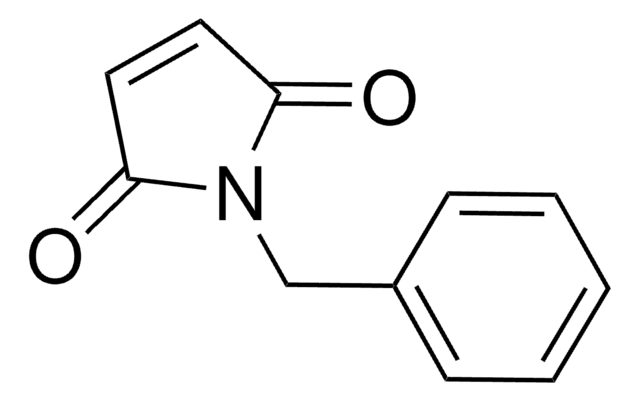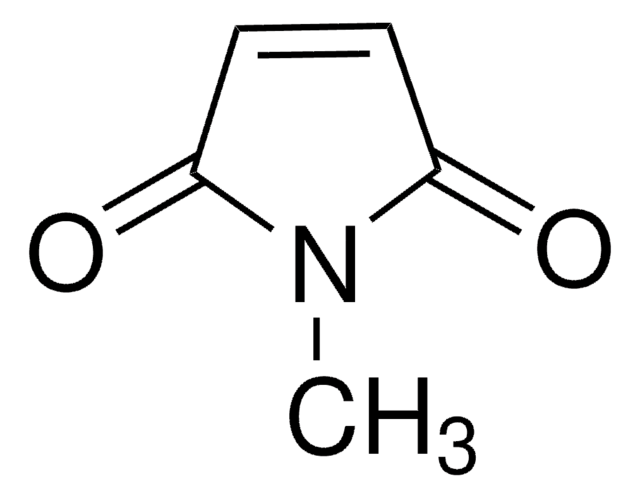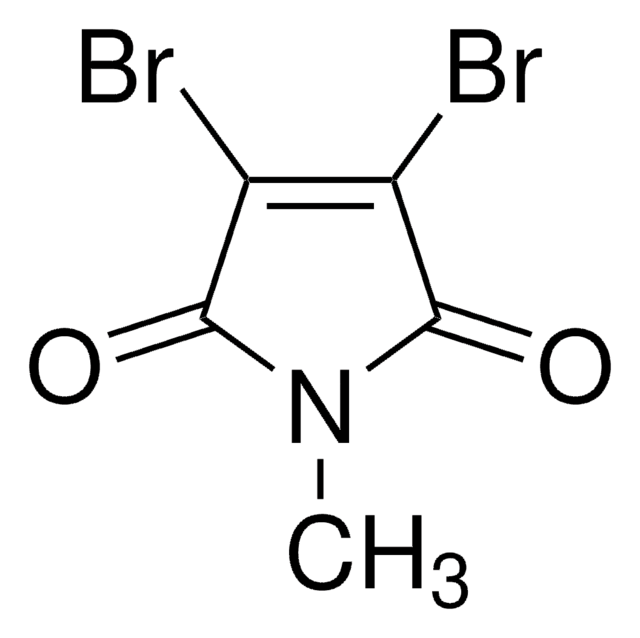381543
N-Cyclohexylmaleimide
97%
About This Item
Productos recomendados
assay
97%
mp
89-91 °C (lit.)
functional group
imide
maleimide
SMILES string
O=C1C=CC(=O)N1C2CCCCC2
InChI
1S/C10H13NO2/c12-9-6-7-10(13)11(9)8-4-2-1-3-5-8/h6-8H,1-5H2
InChI key
BQTPKSBXMONSJI-UHFFFAOYSA-N
General description
Application
signalword
Danger
Hazard Classifications
Acute Tox. 3 Oral - Aquatic Acute 1 - Aquatic Chronic 3 - Eye Irrit. 2 - Skin Irrit. 2 - Skin Sens. 1A - STOT SE 3
target_organs
Respiratory system
Storage Class
6.1C - Combustible acute toxic Cat.3 / toxic compounds or compounds which causing chronic effects
wgk_germany
WGK 3
flash_point_f
Not applicable
flash_point_c
Not applicable
ppe
dust mask type N95 (US), Eyeshields, Gloves
Elija entre una de las versiones más recientes:
Certificados de análisis (COA)
¿No ve la versión correcta?
Si necesita una versión concreta, puede buscar un certificado específico por el número de lote.
¿Ya tiene este producto?
Encuentre la documentación para los productos que ha comprado recientemente en la Biblioteca de documentos.
Los clientes también vieron
Nuestro equipo de científicos tiene experiencia en todas las áreas de investigación: Ciencias de la vida, Ciencia de los materiales, Síntesis química, Cromatografía, Analítica y muchas otras.
Póngase en contacto con el Servicio técnico














